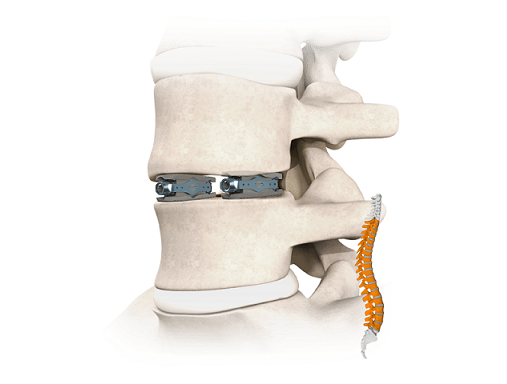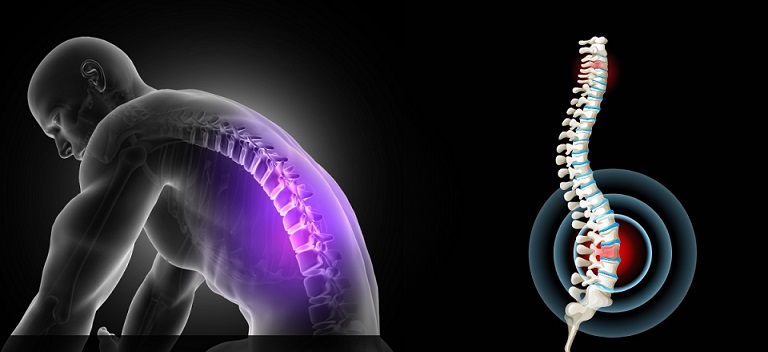Ongoing trial to assess the potential of Zilosul™ to address unmet medical need in OA which affects more than 72 million people in the U.S., EU5, and Canada
Key Highlights
- The first subjects have now commenced dosing in the PARA_OA_002 Phase III study in activated sites in the U.S.
- To date, 21 sites have begun screening and recruiting potential candidates.
- With the initiation of 56 selected sites in the U.S., Paradigm now has a large potential pool of candidates to screen.
NEW YORK, May 4, 2022 /PRNewswire/ — Paradigm Biopharmaceuticals Ltd (ASX: PAR) (“Paradigm” or “the Company”), a clinical-stage biopharmaceutical company focused on repurposing existing molecules for new indications with unmet clinical needs, is pleased to report that the first subjects have been randomized and dosed in the United States (U.S.) in the PARA_OA_002 pivotal clinical trial, evaluating injectable pentosan polysulfate sodium (PPS/Zilosul®) for the treatment of pain associated with knee osteoarthritis (kOA). The first subject randomization was confirmed at Northwestern University, Chicago, by Lead Investigator, Dr. Thomas Schnitzer MD, Ph.D.
The global pivotal Phase III, PARA_OA_002, study is currently screening and enrolling subjects in eight sites across Australia and 21 of the 56 selected sites in the U.S. Clinical trial site activation has been a critical focus for Paradigm from the start of the calendar year to enable a large pool of potential candidates to be identified across the activated sites and begin the screening process. Site activations in the U.S. will continue, and UK and EU sites are also being initiated throughout CY22.
“To have our first subjects randomized in the U.S. is an important milestone in the OA clinical program. The Paradigm clinical team has been working tirelessly to initiate and activate sites throughout the U.S., and we are seeing a large number of subjects entering the screening phase throughout the U.S. We look forward to continuing the strong momentum in the Phase III program and reporting important recruitment milestones to our shareholders,” said Dr. Donna Skerrett, Paradigm’s Chief Medical Officer and Interim CEO.
About Para_OA_002
The purpose of this study is to measure the change in pain and function with subcutaneous injections of PPS compared with subcutaneous injections of placebo in participants with kOA pain. This 2-stage, adaptive, randomized, double-blinded, placebo-controlled, multicenter (US/CAN/AUS/UK/EU) study will evaluate the dose and treatment effect of iPPS in participants with kOA pain.
Stage 1 will comprise a phase 2b dose selection, with participants randomized receiving 1 of 3 iPPS dose regimens or placebo for six weeks. The primary objective of stage 1 will be to select the dose for use in stage 2 and Paradigm’s confirmatory trial (PARA_OA_003). The selected dose will be based on an optimal balance of efficacy and safety.
In stage 2, participants will be randomized 1:1 to receive the selected PPS dose regimen or placebo for six weeks.
The primary endpoints in the pivotal study are changed from baseline at Day 56 in WOMAC® pain with secondary outcomes to include change from baseline at multiple time points out to day 168 in WOMAC® pain and function, Patient Global Impression of Change (PGIC) and Quality of Life (QoL).
Additional information on Paradigm’s clinical trials can be found at ClinicalTrials.gov (002 – NCT04809376, 006 – NCT04814719) or via the Paradigm website www.paradigmbiopharma.com.
Paradigm’s OA program investigating PPS has recently received Fast Track Designation from the U.S. FDA.
US Lead Investigator
The US lead Investigator for the Phase III clinical study Para_OA_002 is Dr. Thomas Schnitzer MD, Ph.D.
Thomas J. Schnitzer, MD, Ph.D., is a Professor in the Departments of Physical Medicine and Rehabilitation, Internal Medicine/Rheumatology, and Anesthesiology at Northwestern University Feinberg School of Medicine. He is a graduate of Harvard Medical School and trained at Johns Hopkins Hospital, the National Institutes of Health, the MRC Rheumatism Unit in Taplow, England, and the Imperial Cancer Research Institute in London, England.
Professor Schnitzer has a long-standing interest in chronic musculoskeletal pain and the development of new therapeutic approaches to its management. At Northwestern University, he founded and directed the Office of Clinical Research and was assistant dean for clinical research at the medical school. He is a Master of the American College of Rheumatology, served on the editorial board of numerous journals, and has published over 200 peer-reviewed publications.
Market Potential in Osteoarthritis
Osteoarthritis (OA) is the most prevalent form of joint disease, affecting up to 16% of the population in the developed world, with more than 72 million people in the US, EU5, Canada, and Australia suffering from OA.1
OA has a significant impact on day-to-day functioning, and although the levels of pain and disability may fluctuate, it has no known cure or spontaneous remission and is associated with irreversible structural damage and progression over time. Presently there are no drugs approved that can prevent, stop, or even restrain the progression of OA. Moreover, the available medications that claim to mitigate the pain of OA have numerous risk/benefit considerations, and market research indicates that only 19% of kOA patients are satisfied with currently available treatments. 2,3
The prevalence of OA is increasing in line with the aging population and increasing rates of obesity. By 2030 the number of people suffering from OA in the US is predicted to increase by 86% to 67 million.2 If we assume a similar increase across the other markets defined above, even allowing for lower rates of obesity in non-US markets, it is plausible that more than 120 million people will be suffering from osteoarthritis by 2030.
About Paradigm Biopharmaceuticals
Paradigm Biopharmaceuticals LTD (ASX: PAR) is a late-stage drug development company with the mission to develop and commercialize pentosan polysulfate sodium for the treatment of pain associated with musculoskeletal disorders driven by injury, inflammation, aging, degenerative disease, infection, or genetic predisposition. Paradigm is also investigating proof-of-concept for the use of PPS in respiratory and heart failure indications.
Forward Looking Statements
This Company announcement contains forward-looking statements, including statements regarding anticipated commencement dates or completion dates of preclinical or clinical trials, regulatory developments, and regulatory approval. These forward-looking statements are not guarantees or predictions of future performance and involve known and unknown risks, uncertainties, and other factors, many of which are beyond our control, and which may cause actual results to differ materially from those expressed in the statements contained in this presentation. Readers are cautioned not to put undue reliance on forward-looking statements.
References
1 Global Health Data Exchange, Institute for Health and Metrics Evaluation, University of Washington. Accessed June 2021 http://ghdx.healthdata.org/gbd-results-tool.
2 OARSI. Osteoarthritis: A Serious Disease, Submitted to the U.S. Food and Drug Administration December 1, 2016.
3 Matthews GL, Hunter DJ. Emerging drugs for osteoarthritis. Expert Opin Emerg Drugs. 2011;16(3):479-491. doi:10.1517/14728214.2011.576670.
Authorized for release by the Paradigm Board of Directors.
To learn more, please visit: www.paradigmbiopharma.com
SOURCE Paradigm Biopharmaceuticals









